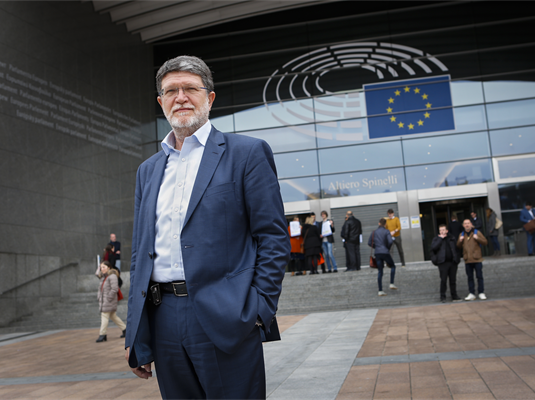Dear Mr Picula, what do you expect: will the new EU enlargement methodology unblock and accelerate enlargement to the rest of South East Europe? What does it depend on?
Although we are still in the time zone of the "historical error" as Mr Juncker described the blockade, the new negotiation methodology is definitely a step in the direction of unblocking the enlargement. First of all, the very fact that the European Commission has committed itself, and then produced a new methodology, indicates the EU's ability to react quickly and proactively in times of crisis. When we talk about the credibility that the European Union has lost by not opening accession negotiations with Albania and Northern Macedonia, it is not just an unfulfilled promise to the citizens of those countries, but a far more important issue of the general credibility of the European Union's foreign policy. Today, globally, we face extremely complex geopolitical, environmental and security challenges that result from the inability of European and other political leaders to anticipate them and prepare their solutions in advance, which is better than the case when they deliberately produce crises. Many enlargement skeptics, as well as Union apologists, forget that to the closest EU neighborhood romantic ideas about an EU where freedom, equality and fraternity rule, isn't enough, but they also need guarantees of the concrete benefits of membership. Otherwise, we leave our neighbors to the influences of other geopolitical players, who don't have democracy, the rule of law or human rights on their priority list.
What are your compliments and objections to the document?
The most important recommendations for the methodology of enlargement, which I, as rapporteur of the European Parliament, will make in the document and send to the European Council and the Commission ahead of the Zagreb Summit, is kind of a list of compliments and remarks. We emphasized that the enlargement process must promote the fundamental values ??of the Union and result in a sustainable democratic and economic transition, as well as economic convergence, and must go hand in hand with the internal reform of the Union itself. I believe that it is necessary for the Union to provide clear and consistent indicators of progress, but also continuous support throughout the process, to improve benchmarks and thus to ensure that each country is evaluated on its own merits. To strengthen the mechanism of conditionality and reversibility of the process through the application of objective criteria when deciding to suspend negotiations, which is a mechanism that really signals that institutional development and reform must not be faked. In addition, I emphasize that the primacy of democracy and the rule of law is reflected through an approach in which the chapters on justice, corruption and organized crime, as well as human rights and media freedom, are the first to open and last to close in the accession negotiation process. In order to prevent the internal crises of individual members affecting the enlargement process, I supported the introduction of qualified majority voting on EU accession issues, while the consensus rule should only apply to the issues of opening and closing accession negotiations. I have mentioned earlier the concrete incentives for candidates to pursue reforms, which is why it is necessary to avoid cuts in the financing of pre-accession programs, which could have the effect of slowing down reform processes and reducing the EU's strategic influence in the region.
In addition, I would like to send a message about the importance of resolving the problems currently facing us and my request that the negotiations with Albania and Northern Macedonia open immediately. In the end, I think the idea of ??clustering, grouping, negotiation chapters is good, but I wish there would be no clustering of members in the Council in the future according to enlargement policy. The possibility of some new strategic surprises should be reduced in this point.
Read the whole interview on the link.


